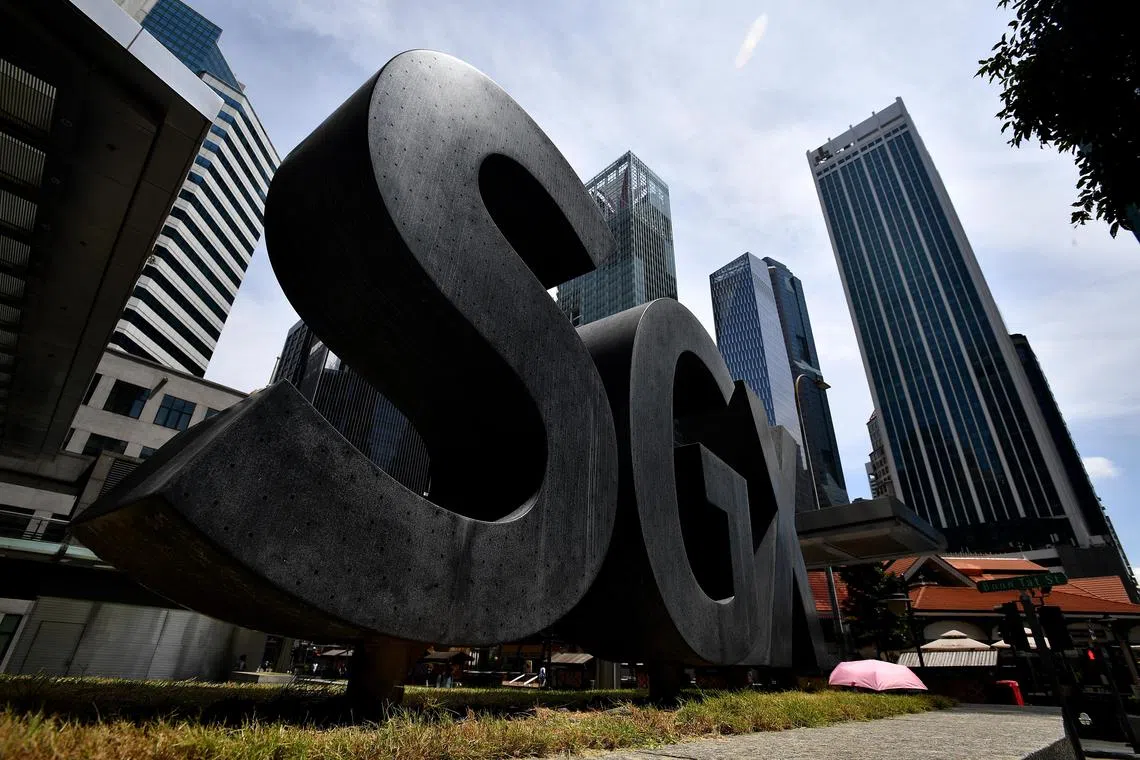Singapore stocks close higher despite regional weakness
Sign up now: Get ST's newsletters delivered to your inbox

The STI inched up 0.3 per cent to close at 3,236.08 on Dec 8, 2022.
PHOTO: ST FILE
SINGAPORE – Local shares defied a near region-wide decline on Thursday after a lacklustre session on Wall Street overnight.
The benchmark Straits Times Index (STI) inched up 0.3 per cent or 10.63 points to close at 3,236.08, with gainers outstripping losers 304 to 222 on trade of 1.4 billion shares worth $928.8 million.
DFI Retail Group led the index gainers, with the counter rising 3.9 per cent to US$2.93, while Yangzijiang Shipbuilding ended at the bottom of the STI performance table, falling 2.2 per cent to $1.35.
DBS was also among the six STI counters that closed in the red, slipping 0.4 per cent to $33.35. Rival banks OCBC and UOB both rose 0.6 per cent.
IG market analyst Yeap Jun Rong noted that the STI has been recently retesting its mid-November low at the 3,230 level.
“Defending this level may be key as any downward break may also validate a recent double-top formation and prompt further downside,” he said.
Elsewhere, most regional markets closed in the red as traders continued to grapple with the possibility of recessions in the United States and Europe.
US investors are also concerned that stronger-than-expected economic data due on Friday will prompt the Federal Reserve to keep interest rates higher for longer.
The S&P 500 was down 0.2 per cent – its fifth consecutive day in the red – and the tech-heavy Nasdaq dropped 0.5 per cent, although the Dow Jones Industrial Average added 0.1 per cent.
Key indexes in Japan, Shanghai, South Korea, Taiwan and Australia declined between 0.1 per cent and 0.7 per cent.
However, the Hang Seng Index in Hong Kong bucked the trend with a 3.4 per cent gain, on reports that the city may consider easing more Covid-19 rules.
SPI Asset Management managing partner Stephen Innes noted: “Markets are leaning very much towards a risk-off bias amidst growing concern about the unhealthy state of the global economy.” THE BUSINESS TIMES


